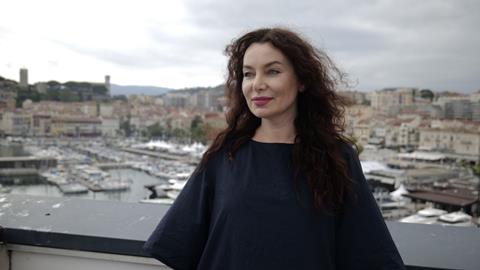
The New Horizons International Film Festival in Wroclaw, Poland is celebrating its 24th edition this month (July 18-28) with a jam-packed programme, featuring 285 films across various strands, including an official competition, four major retrospectives, a series of thematically linked sidebars, and a strong visual art component.
“We are the biggest film festival in Poland and the audience is huge, more than 140.000 people,” says artistic director Ewa Szablowska. “The audience is very diverse. Twenty-four years ago, when the festival started, people were super hungry for arthouse cinema and a whole generation of cinephiles grew up with New Horizons. We still have this audience but also are proud to attract new, young audiences in the contemporary landscape of viewing preferences. We are one of the few festivals, whose audience is growing younger not older.
“Besides bringing the the best films from Cannes, Locarno, Venice, Berlinale, Sundance, we’re bringing a certain vibe of cinema that cannot be found elsewhere in the regular distribution. Films, that are not afraid to be formally daring.”
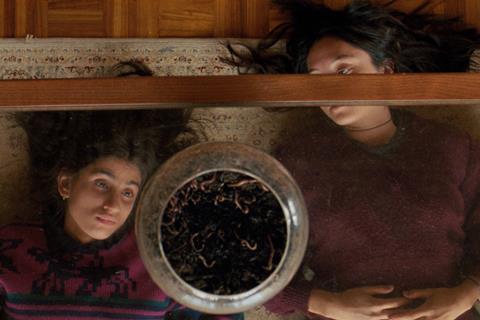
Big splashy titles such as Yorgos Lathimos’s Kinds Of Kindness, Jacques Audiard’s Emilia Perez, Rungano Nyoni’s How On Becoming a Guinea Fowl or Rose Glass’s Love Lies Bleeding, are screening alongside this year’s competition line-up which features Luna Carmoon’s Hoard, Ena Sendijarević’s Sweet Dreams, Deimantas Narkevičius’s Twittering Soul, Cristina Friedrich’s Zona, Nelson Carlo de Los Santos Arias’s Pepe, Yorgos Zois’s Arcadia, Eva Trobisch’s Ivo, Nele Wohlatz’s Sleep With Your Eyes Open, Gábor Reisz’s Explanation For Everything, Ariane Labed’s September Says, Constance Tsang’s Blue Sun Palace, and Matthew Rankin’s Universal Language.
“We are looking out for the emerging filmmakers and new voices,” says Szablowska of the competition selection, the winners of which are voted for by a jury as well as by the public.
“We want [films] to be edgy, we want them to be bold and arresting,” she explains. ”This counts for New Horizons as a whole, but, for the competition especially. We want to get those new voices, new visions coming from around the world from filmmakers who are brave to follow their own path away from conventional narratives, perspectives and emotions.”
New Horizons is famed for its wide-ranging retrospectives and this year is no different, with four major seasons on French director Bertrand Bonello, Japanese New Wave director Nagisa Ōshima, Swiss New Wave director Alain Tanner, and the first complete film retrospective of US choreographer and dancer Yvonne Rainer.
“She was more known as a dancer, as a choreographer, as somebody who challenged and changed the scene of contemporary dance,” says Szablowska of Rainer, “but as a filmmaker she’s a bit in the shadows.”
To coincide with the Rainer retrospective, the festival is also running a dance programme, including a performative lecture by a Polish dancer Ramona Nagabczyńska and a performance by the UK’s Sarah Wookey, a collaborator and student of Rainer.
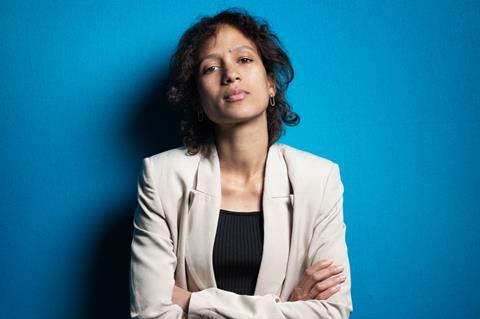
“It’s important for us to have an exhibition of visual arts accompanying the festival to show what you can do with film outside the cinema setting,” reveals Szablowska, who has also programmed a strand called Let’s Go, based around the practices and philosophies of walking, inspired by Rebecca Solnit’s book Wanderlust, which unspools alongside an accompanying contemporary art exhibition called Steps.
The festival is also presenting a focus on Mati Diop, the French-born-Senegalese director, actress and producer, which is connected to another retrospective programme, African New Waves. “It’s a contemporary look at the new wave cinema from African countries in 70s and 80s,” says Szablowska. “It was very interesting to make those narrative arches that combine the history of cinema and issues of decolonisation with contemporary perspectives.”
Almost 70% of the festival’s audience is from beyond the city of Wroclaw. “People come from all over Poland. It’s a phenomenon,” she explains. “We even have this word in Polish that derives from the name of the festival, that means ‘edgy cinema’. People say, ‘That film is very new- horizontal. And there is this whole generation called ‘New Horizon generation’ who grew up and came of age with the festival which shaped sensibilities and how we look at films.
“We hope to be that for the next generation as well,” concludes Szablowska, “to continue together with Malgorzata Sadowska, my artistic co-director and Marcin Pieńkowski, the festival director the legacy of festival founder Roman Gutek, to see films as a collective experience, which brings people together.”





















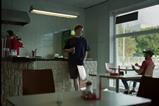
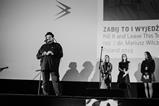
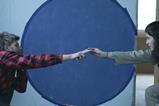






No comments yet